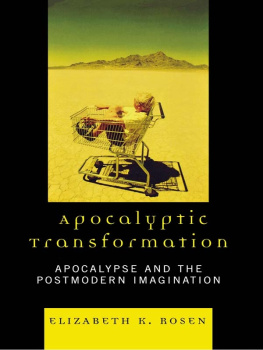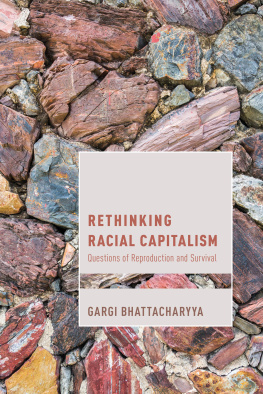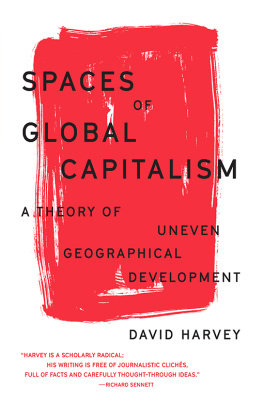


First published by Zero Books, 2010
Zero Books is an imprint of John Hunt Publishing Ltd., The Bothy, Deershot Lodge,
Park Lane, Ropley,
Hants, SO24 0BE, UK
www.o-books.com
For distributor details and how to order please visit the Ordering section on our website.
Text copyright: Evan Calder Williams 2010
ISBN: 978 1 84694 468 0
All rights reserved. Except for brief quotations in critical articles or reviews, no part of
this book may be reproduced in any manner without prior written permission from
the publishers.
The rights of Evan Calder Williams as author have been asserted in accordance with the
Copyright, Designs and Patents Act 1988.
A CIP catalogue record for this book is available from the British Library.
Design: Stuart Davies
Printed in the UK by CPI Antony Rowe
Printed in the USA by Offset Paperback Mfrs, Inc


Acknowledgements
Many thanks to many people. First and foremost, Erik Bachman and Ben Noys, whose comments on an earlier draft were invaluable. Marsh Leicester, along with Erik Bachman and Katie Woolsey, with whom I've watched a lot of movies over the past few years and whose thinking impels, challenges, and shapes my own. Ongoing dialogue with Alberto Toscano, fellow catastrophile, and China Miville, without whom salvagepunk is near unthinkable, has been crucial. My parents for decades of friendship and love. Olivia Egan-Rudolph for countless conversations and for making this past year infinitely better. Tariq Goddard and Mark Fisher for taking on and dealing with this behemoth, helping make something sharper of it. Laura Oldfield Ford for the cover image and for sharing the same love for things ruined and same hate for things that deserve to be.
Above all, thanks to my comrades in crisis out here in California. In these grey days, you're a hot torch, a joyous mob, and a promise to never go quiet into that bad night.
Introduction
In the dark times, will there also be singing?
Yes, there will be singing
About the dark times.
Bertolt Brecht,Motto

The crystal ball doesnt appear to be working. At the Economic Facultys council of experts meeting in Roy Anderssons 2000 film, Songs From the Second Floor, nothing is clear. Or rather, things are too clear. The ball doesnt cloud and provides no shadows of what is to come. Worse, the chairman cant find his future perspectives in his briefcase, and he cant imagine where theyve gone. The facilitator notes, it appears that we shall have to skip the strategies and concentrate on tactics instead.
This book is an attempt to produce some of those shadows. It is a theory of the apocalyptic fantasies of late capitalism1, manifested above all in the cinema and the wider cultural, political, and economic landscape from the end of the 60s to now. If these films and novels, political struggles and cultural obsessions are scattered tactical expressions that try to grasp the consequences of this world order coming to an end, the task of this book is to try and discern the obscure strategy lying behind them.
This book is written in the crux of, and is necessarily inflected by, a crisis that may very well turn out to be both a genuine end and an opening out. The financial crisis of the past two years now shows itself to be much more than the bursting of a few speculative bubbles, the massive injection of bailout money to jumpstart a temporarily flat-lining heart, and a few lean years of recession before things go back to normal. No, we stand at the front edge of something massive, a genuine tectonic shift in the organization and future sustainability of global capitalism. We have yet to see the real fallout of the height of financialization and other emergency mechanisms that propped up wealth creation in the long downturn of manufacturing profits. But what we certainly arent seeing are green shoots of a shaken but healthy market pushing up through the rubble. Just a fierce doom and bloom.
Undergirding the analysis and tone of this book is a real and reasoned conviction that this crisis is terminal, that, from here out, there is no return to normal - both the shared image of capitalism as the natural, eternal state of affairs beyond which no horizon can be seen, and the system-wide profitability it takes to support that.. The fundamental fantasy of plenitude, regeneration, and persistence lying behind our structures of accumulation grinds to a halt. And more drastically, with the end of endlessly available credit, a new void of the future itself. The late capitalist present was necessarily staked on the capacity to realize and replicate itself by borrowing against the guaranteed promise of the future as the site of more of the same and of the endlessness of reproduction without difference. A future contingent upon getting the loan (in the present) for the capital to produce the surplus-value without which the loan cant be paid back. Consequently, the legitimated condition of borrowing in the present is the temporal feedback loop of having already been given the money, an auto-verification now become auto-consumptive. In the wake of this, the permanence of the here and now comes unstuck, leaving the uncertain shell of the ensured future and the nervous repetition of the defaulted present to plow forward into nothing.
Yet this is not to devolve into the fantasy of the presents imminent self-destruction, of waking tomorrow to find ourselves free of the logic of profit and the neoliberal state. To retrofit a now infamous image from Walter Benjamin, that of the angel of history being blown backward into the future and watching the catastrophes of the present becoming the ruins of the past, we should make sure that in trying to put our feet down and take stock of where we stand, we arent dragging our feet. That we arent trailing along backwards on some froth of the present, that we dont mistake the small clouds of dust and bits of detritus stirred up by our attempts to read a history for a real deadness and brokenness of the era. In other words, even that which seems on its way out - a certain late capitalist mode of accumulation predicated on global growth, related state forms and foreclosed political horizons - isnt likely to disappear before our eyes overnight. On the contrary, the character of the years to come will likely be that of the not-ending, the outmoded but going nowhere. If we call these apocalyptic times, we do so because of what is revealed. Namely, the pervasive structures of capitalist apocalypse and the fantasies needed to approach and mediate them, not in the simple fact that an era is drawing to a close.
Why apocalypse? What is the value of a word at once over-dramatic and overloaded with historical, and particularly religious, baggage? The first reason is practical: the objects of my analysis consists largely of end of the world movies and other cultural imaginings of civilizations collapse or the total destruction of human life. These things get called apocalyptic in the broadest sense, designating scenarios concerned with
Next page













